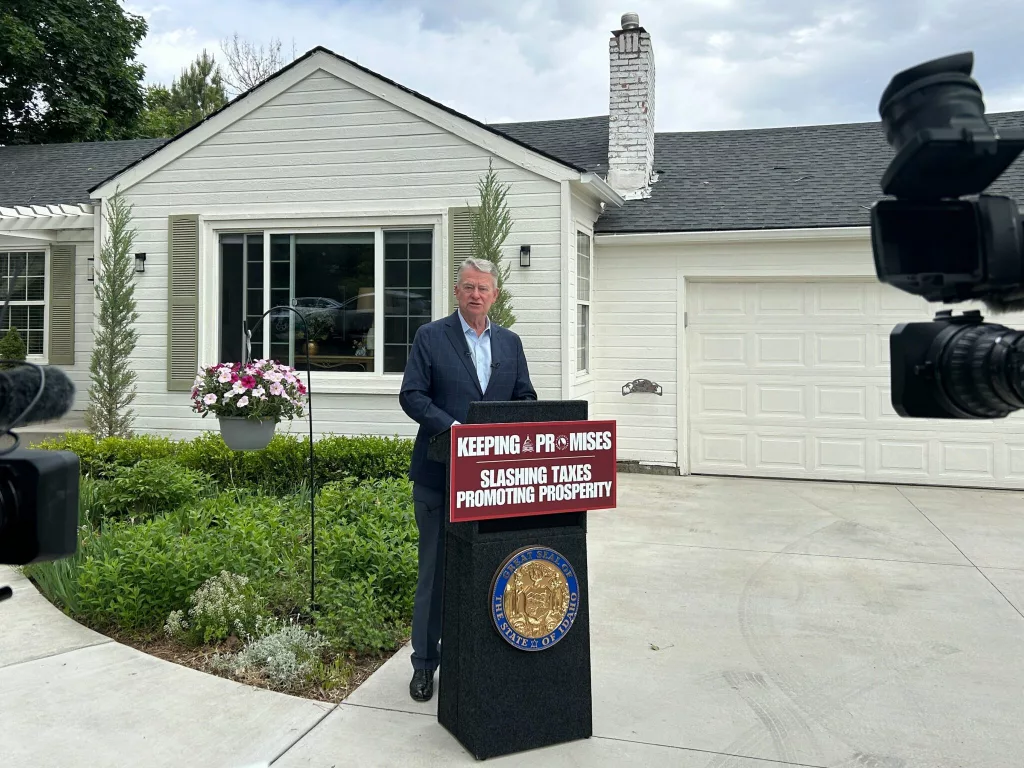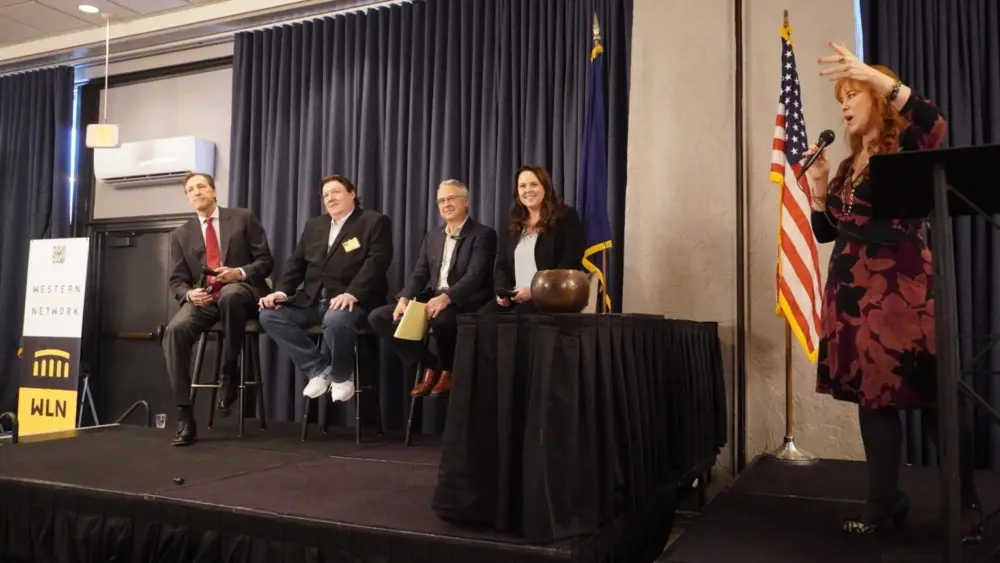NAMPA, ID — Gov. Brad Little touted tax cuts and public school funding as key takeaways from this year’s legislative session.
In a news conference on Monday in Nampa, Little reflected on the outcome of the 2025 session of the Idaho Legislature and ongoing federal cuts — by the executive branch and proposed by Congress.
With the over $400 million in tax cuts Little signed into law this year, the governor said he and state lawmakers have cut taxes by $6 billion in the six years he’s been in office.
“Idaho has proven that we can give back consistently while taking care of the needs of a very fast growing state,” Little told reporters.
He also said since he became Idaho’s governor, the state’s support for public schools has boosted 60% — from a $1.7 billion budget to now over $2.6 billion.
Early on in the legislative session, Little expressed concern about the high amount of tax cuts proposed by the Legislature — which were well over the $100 million the governor proposed in his budget.
Asked how he felt about the state’s finances after signing the tax cut bills, Little pointed to the future.
“I remember the speaker saying, ‘Oh yeah, we can afford it.’ And he’s exactly right. We can afford the 400 million. But the issue is, where are you in year two, year three, year four?” he said.
“Right now, we’re still about the fastest growing state. And if we can continue, we’re going to be fine. But I just don’t think most Idahoans think we ought to bet on being the fastest growing state forever,” Little continued.
Idaho Gov. Little reflects on signing private school tax credit bill
In his State of the State address at the start of the legislative session, Little proposed putting $50 million to allow tax dollars to be spent on private schools. But later in the legislative session, he said he worried the private school tax credit bill — which proposed that same amount of funding — didn’t have enough accountability.
Asked why he signed the bill, Little said government oversight of those funds rose to six state tax commission employees amid negotiations. And he said the bill excludes families earning over a certain high income, and overweighs for disadvantaged students.
“Those were all components of what I asked for,” Little said. “I would have done it a little differently. But literally, everything I get from the Legislature, I would have done a little differently. That’s part of our constitutional process.”
Idaho governor vetoed a medical freedom bill. Then he signed a revised version.
The governor only vetoed one bill from the Idaho Legislature this year: A sweeping “medical freedom” bill that bans requirements for vaccines or any medical treatment as a condition of entering or receiving services from businesses, schools, and state and local governments
In his veto letter, Little said he worried the bill would prevent schools from sending home sick kids.
Then about a week later, he signed a revised version of the bill that allows schools to send home sick kids.
Little told reporters Monday that lawmakers fixed his issue with the bill. But asked whether the bill will also block businesses from sending home sick employees or customers, he didn’t seem sure.
“That will obviously be determined,” Little said. “My veto was predicated on what it did for public schools.”
Idaho Gov. Little heads to Washington, D.C., amid federal budget cut talks in Congress
Little said on Tuesday he’s heading to Washington, D.C., to talk about executive branch federal cuts that affect Idaho — including those by the executive branch that ended grants for the city of Pocatello.
For many of the grants halted or paused, the money is still available, he said.
“We need to see how the money gets reallocated. There’s a lot of that taking place. I haven’t seen anything that rises to the magnitude that is something that we need to be urgently concerned about,” Little said.
Congress is also debating massive federal cuts to extend tax cuts in what has been dubbed the “big, beautiful bill.” Little said he wonders what’ll be in the bill, and how it impacts Idaho.
“We’re one of the most efficient states,” Little said of Idaho’s management of Medicaid. “And that’s one of the things I’m worried about is they categorically tell all the states ‘We’re going to cut your program by such and such.’”
Idaho Capital Sun is part of States Newsroom, a nonprofit news network supported by grants and a coalition of donors as a 501c(3) public charity. Idaho Capital Sun maintains editorial independence. Contact Editor Christina Lords for questions: info@idahocapitalsun.com.





